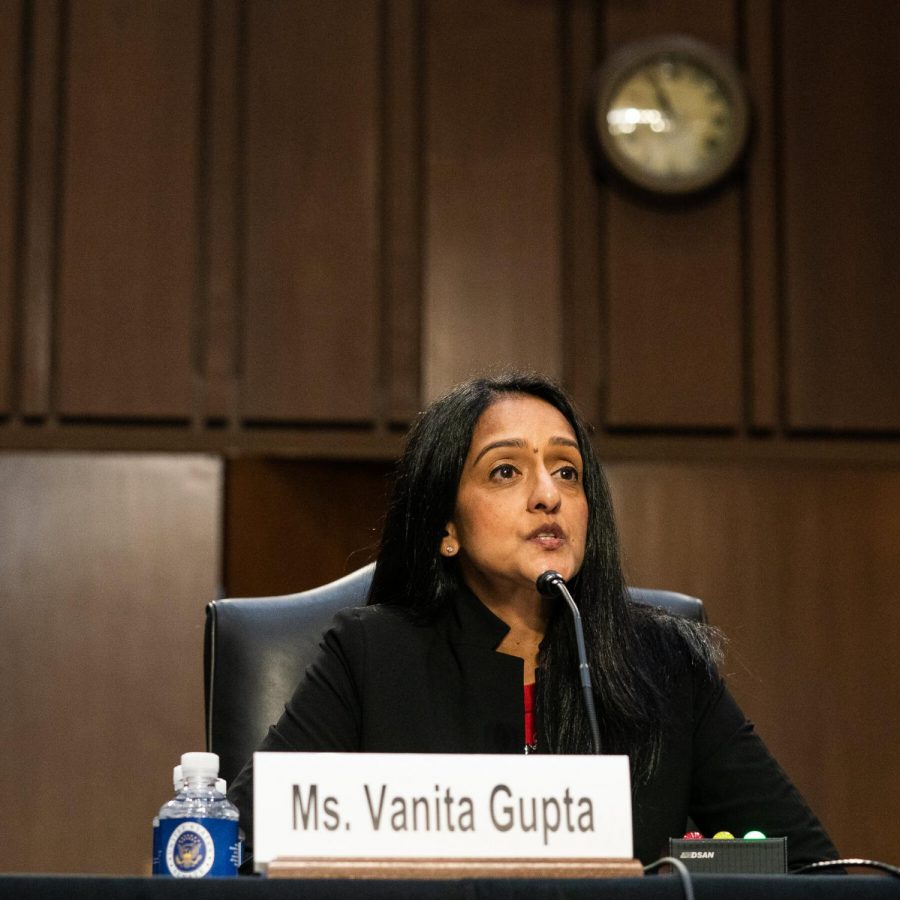Politics Biweekly 5 — Lessons from a historic confirmation
Courtesy of The New York Times
Vanita Gupta faces great opposition from Republican Senators in the vote to grant Gupta the role as associate attorney general.
The past two weeks have been full of news and impactful events. The trial of George Floyd’s murderer, Derek Chauvin, came to a close. More tragic violence was committed by police against Black Americans. President Joe Biden continued making decisions good and bad, with one of his worst yet coming in the form of a choice to maintain the Trump administration’s inhumane policies on refugees. This week’s column, though, focuses on a much less high-profile event. That event came today, Wednesday April 21, as the Senate voted 51-49 to confirm Vanita Gupta for a role as associate attorney general.
To most, this vote would appear relatively routine and inconsequential. Within the vote, however, are a number of political layers that exhibit important points about the state of affairs in Washington.
Gupta was an extremely qualified nominee. She has previously worked as the President and CEO of The Leadership Conference on Civil and Human Rights and as America’s chief civil rights prosecutor under the Obama administration. Her advancement to the Justice Department’s third highest-ranking role also advances diversity, as Gupta is the first woman of color to hold the associate attorney general position.
Despite all of these factors, Gupta’s nomination faced significant opposition from Republicans in the Senate. The reason her story even came across my news feed today was not her great qualifications or historic confirmation — it was the fact that only one Republican Senator voted to advance her nomination. Even worse, that one affirmative vote was being covered not for the fact that 49 others stood in unjustified opposition, but rather because it was surprising to many to see even one Republican support Gupta. The opposition she faced was based on some ridiculous arguments. Senate Minority Leader Mitch McConnell called her record “astoundingly radical.” The radical positions? Past support for policing reforms and drug legalization. While those ideas are controversial, they are held by millions of Americans and are hardly “astoundingly radical.”
The one Republican Senator who did vote to confirm Gupta was Lisa Murkowski of Alaska. She took a very reasonable position: she did not agree with Gupta on some issues, but based on their conversations she knew Gupta was qualified and wanted the job for the right reasons. As such, she supported Gupta moving forward and voted accordingly.
What’s shocking is that Murkowski’s position was not the Republican norm, but rather a bold outlier among a sea of staunch opposition. Here was a nominee who was eminently qualified based on all objective metrics, and here she was barely scraping by on a 51-49 affirmative vote. Gupta has spent her career fighting for civil rights at the highest levels. The Republican party at-large sees that as a disqualifier, not the exact opposite that it really is. When half of our leaders are doing everything they can to stand with contempt in the way of those who fight for our basic rights, we are in a dark place.


